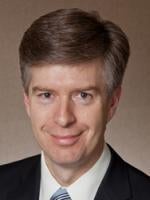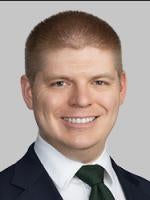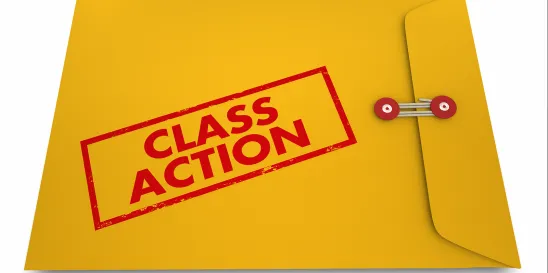A recent decision denying class certification in the Northern District of Illinois highlights the importance for class action defendants of challenging a named plaintiff’s damages expert as part of a strategy for opposing class certification. In Thomas v. GEICO, Case No. 1:20-cv-04306 (N.D. Ill.), the court denied the named plaintiffs’ motion for class certification after striking the testimony of their damages expert, holding under Comcast Corp. v. Behrend, 569 U.S. 27 (2013), that the proposed classes could not be certified in the absence of a viable class-wide damages model.
In Thomas, plaintiffs James and Roxanne Thomas claimed that GEICO Casualty Company, GEICO Indemnity Company, and GEICO General Insurance Company (collectively, “GEICO”) violated the Illinois Consumer Fraud and Deceptive Business Practices Act (ICFA) by allegedly charging excessive private passenger automobile (PPA) insurance premium rates during the COVID-19 pandemic. The plaintiffs sought monetary damages on behalf of two proposed classes of GEICO policy holders in the form of a refund for “excessive” premiums paid to GEICO based on PPA rates that did not reflect their reduced driving — and therefore reduced risk of loss — during the pandemic.
In support of their theory of damages, the plaintiffs presented the expert testimony of economist Bernard Birnbaum, who advanced a methodology for calculating the allegedly excessive portion of the insurance premiums paid by plaintiffs and the proposed class. Birnbaum’s methodology involved first calculating a “reasonable” PPA premium rate “based on facts GEICO knew or should have known at the time it determined its rates,” and then subtracting that reasonable rate from what GEICO actually charged the named plaintiffs and proposed class to ascertain the “reasonable premium relief” that should be returned to the class.
The court noted that “the parties and Birnbaum agree that the methodology’s purpose is to determine what return Plaintiffs should receive. Avoiding semantics, PPA rates determine future costs, while Birnbaum’s methodology seeks to calculate returns. The two are hardly one in the same.” Thomas v. GEICO, Case No. 1:20-cv-04306, Dkt. 208 at 7 (N.D. Ill.) The problem for plaintiffs was that they “fail to raise in their briefing and oral argument that Birnbaum’s report cites a recognized methodology that mirrors the reasonable premium relief methodology. It is not up to the Court to go on expedition to support or create Plaintiffs’ arguments.” (Id. (citing Contilli v. Loc. 705 Int’l Bhd. of Teamsters Pension Fund, 559 F.3d 720, 724 (7th Cir. 2009) (“Judges are not like pigs, hunting for truffles buried in briefs.”) (quoting United States v. Dunkel, 927 F.2d 955, 956 (7th Cir. 1991))).”
Regardless of what on thinks of the merits of this Daubert motion decision, having held the plaintiffs’ damages model to be unreliable (and therefore inadmissible as expert testimony), the court was compelled to deny the plaintiffs’ motion for class certification. Applying the holding in Comcast Corp., the court held that “without presenting a reliable [damages calculation] methodology ‘[q]uestions of individual damage calculations will inevitably overwhelm questions common to the class.” Thus, without a viable class-wide damages model, plaintiffs could not establish predominance under Fed. R. Civ. P. 23(b)(3).
This decision highlights the importance to class action defendants of attacking named plaintiffs’ damages experts as one strategy for opposing class certification. For plaintiffs, it highlights the need to support every aspect of their class certification expert’s work to show that it is fully admissible.





 />i
/>i
